Meet the 2024 E.C. City Council Candidates
Eau Claire residents will elect City Council district representatives on April 2. Here’s who the candidates are and where they stand.
In case you hadn’t noticed all the yard signs, it’s that time again: Wisconsin’s spring election is Tuesday, April 2. Unlike fall elections – like the one we’ll have in November for president, Congress, and the state Legislature – spring elections are nonpartisan. But that doesn’t meant they’re without importance.

In fact, you could argue that these elections are in many ways more important than the higher-profile ones: Local government is where the rubber meets the road in terms of representative democracy. It’s members of city councils, school boards, county boards, and other local offices who determined how roads get plowed, fires get extinguished, and children get educated.
In the City of Eau Claire this spring, voters will chose among candidates for district-level seats on the City Council. To fill these seats, the city is divided into five district, which you can find a map of at tinyurl.com/ECCouncilDistrictMap. (At-large members of the council are elected on a different cycle, and will be on the ballot again in 2025.) Two district-level incumbents – the Third District’s Jeremy Gragert and the Fourth District’s Jill Christopherson – chose not to seek re-election. One incumbent, Jessica Schoen in the First District, is running unopposed. The remaining two incumbents both face opposition: The Second District’s Emily Anderson is being challenged by Brian Trowbridge, and the Fifth District incumbent Andrew Werthmann faces challenger Mary Catherine Partlow.
The biographies and question responses on the following pages will help you get to know the candidates both as people and as politicians. As in past years, we asked candidates to rank their priorities by allocating 100 points across a variety of important issues. A more detailed explanation of this process can be found below (“What Do All Those Numbers Mean?”).
Where do I vote?
The state’s official myvote.wi.gov website will tell you what’s on your ballot, and where your polling place is: Just select the “Where Do I Vote?” icon, input your street address, and you’ll be directed to your polling place. The same website can also help you find out if you’re already registered to vote (this will save you some headaches on Election Day, although you’ll still need to bring a photo ID to the polls) and who your current elected officials are.
What do those numbers mean?
As of way quantifying the candidates’ priorities, we gave all of them a list of categories and 100 points. They were asked to assign more points to the categories they would emphasize and fewer points to those that would take a lower priority if they were elected. Candidates didn’t have to assign points to each category, and they were given an “other” category if they felt the options we provided didn’t cover all their priorities. We also asked the candidates to explain why they arranged the priorities the way they did. You’ll see that as the last question in the Q&A.
Eau Claire City Council District Candidates 2024
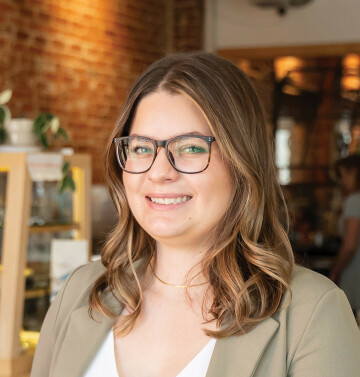
Jessica Schoen (Incumbent, District 1)
| Infrastructure | 20% |
|---|---|
| Public Safety | 20% |
| Public Transportation | 10% |
| Maintaining/Reducing Taxes | 0% |
| Recreational & Cultural Opportunities | 10% |
| Public Health | 0% |
| Economic Development | 0% |
| Environmental Sustainability | 20% |
| Affordable & Available Housing | 20% |
age 29.
years in Eau Claire 6.
family Married to Kyle Johnson.
occupation Environmental enforcement specialist, Wisconsin Department of Natural Resources.
education UW-Stevens Point, 2016.
political experience Appointed to City Council District 1 seat in 2023.
What’s the most exciting thing to happen in Eau Claire in the past five years, and how do we expand on it?
Eau Claire has been attracting more and more residents in recent years. Our community continues to bring people to the area to raise families, open businesses, recreate, and enjoy the unique blend of urban amenities with the feel of a small town. In years coming, continued focus on affordable housing, environmental protection, and community engagement will contribute to the welcoming atmosphere which has brought us success thus far. Increased emphasis on collaboration with local businesses, organizations, and community groups will strengthen our sense of community and belonging.
What unique qualities or skills do you possess that set you apart from the other candidates?
I am an environmental professional with a passion for civic engagement. My experience working to improve water quality, soil health, and sustainability will continue to aid me in my role on council. While earning a degree in Water Resources, I held several part-time jobs including managing a campus stockroom, driving buses, serving as a research assistant, and working at a camp. Following graduation, I sought out volunteer opportunities. I have served as election official, volunteered on city/county committees, and led community fundraisers. My work ethic and sincere interest in bettering my community drive me to represent District 1 well.
What role should the city play in addressing the upheaval caused by the closure of HSHS Sacred Heart Hospital and the local Prevea clinics?
Continuing open dialogue with the HSHS/Prevea Recovery Task Force is essential to understanding how best the city can assist in addressing the impacts of the closure of HSHS/Prevea clinics. This Task Force is comprised of diverse stakeholders in the region with objectives including assisting former employees with securing new jobs, addressing healthcare gaps, identifying funding sources, and keeping the community updated as progress is made and new information becomes available. The city has communicated directly with the facilities regarding concerns, legal obligations, and the numerous local impacts. We must continue advocating for the people of Eau Claire.
What can (or should) the city do to ensure affordable, accessible housing for all residents?
In addition to the ongoing updates to our zoning code which will make policy changes focused on increasing housing supply, the city should prioritize other metrics of affordable living. This includes supporting public transportation, maintenance of roads and sidewalks, and investment in green infrastructure. Ensuring our community is resilient to changing weather patterns will reduce the costs of necessary repair/replacement. We must also continue providing financial support to affordable housing projects that address the current needs of residents.
Please write a statement explaining why you organized your priorities as you did.
While all of the issues listed are important, I prioritized issues that the city has a legal obligation to fulfill and has a direct ability to address. With limited resources and budget, mandated services including public safety, safe drinking water, and well-maintained infrastructure must be prioritized. Prioritizing issues like sustainability and affordable housing are pressing issues that cannot be ignored at risk of increasing long-term costs associated with failure to do so. Failure to invest in sustainable solutions which better prepare our community for the climate crisis may result in costly repairs to infrastructure, damages to private property and loss of lives. Failure to prioritize affordable housing would decrease the quality of life for many residents which could result in increased poverty rates, higher rates of hunger, furthered racial inequities, and worse academic performance for children and teens. I also believe that prioritizing public transportation is a major component of affordable living by reducing the financial strain of automobile ownership on residents. Finally, I firmly believe that all residents are owed access to a public greenspace which is safe and welcoming.
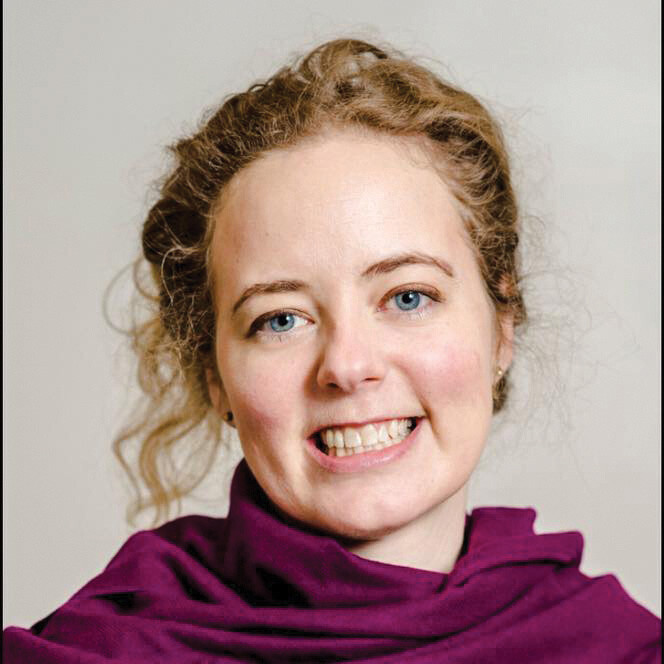
Emily Anderson (Incumbent, District 2)
| Infrastructure | 10% |
|---|---|
| Public Safety | 10% |
| Public Transportation | 10% |
| Maintaining/Reducing Taxes | 0% |
| Recreational & Cultural Opportunities | 10% |
| Health Care Access | 10% |
| Economic Development | 10% |
| Environmental Sustainability | 15% |
| Affordable & Available Housing | 15% |
| Other (Civic Engagement) | 10% |
age 44.
years in Eau Claire 20+.
family None listed.
occupation Writer, nonprofit professional.
education Manz, South, Memorial ’97, Macalester College ’01, School of the Art Intsitute of Chicago, MFA, 2004; Bucknell University MA, 2011; SUNY-Buffalo, PhD, 2017.
political experience Two terms on the Eau Claire City Council; current Council Vice President.
What’s the most exciting thing to happen in Eau Claire in the past five years, and how do we expand on it?
The library expansion! It was beautiful to see the community come together to accomplish this long-dreamt-of project. We can expand on it by finding creative ways to use the space to build community. (I’d love to host an introvert-friendly party in the library’s test kitchen; cookies can bake while everyone reads quietly.) There’s all kinds of evidence that social isolation underlies many of the challenges we face, as a city and a nation. The library offers us opportunities to renew our civic life. Who knows what we’ll cook up together?
What unique qualities or skills do you possess that set you apart from the other candidates?
I’m the only councilmember with an arts background, which comes in handy when you’re serving in a community that champions the arts. I bring creativity, imagination, and empathy to my council service. As a writer, I am drawn to people’s stories, and have learned so much from residents who’ve come to testify about their struggle to find housing, or experiencing racism, or even sharing about their love for the park near their home. People who speak up and share their stories motivate me to work for an Eau Claire where everyone can feel at home.
What role should the city play in addressing the upheaval caused by the closure of HSHS Sacred Heart Hospital and the local Prevea clinics?
I wish the city had the resources to just fix this! But here’s what we can do: 1. Collaborate with the regional Task Force to support building out local solutions. 2. Help residents to lobby our state government. We have a right to healthcare, and the state has the tools and resources we need to get it. 3. Share accurate public health information, so we can track impacts and measure success. 4. Support our public health and emergency responders – they are all working hard to solve new problems and keep people safe and healthy.
What can (or should) the city do to ensure affordable, accessible housing for all residents?
We’ve been doing a lot, but with 36% of our community experiencing low income, demand still exceeds our capacity. Some recent things to celebrate: The city funded the community’s first nonprofit land trust, which will have homes built by Habitat for Humanity. We are also working on revamping our zoning rules, asking “how can we make housing less expensive to build, while promoting more diverse types of housing within walkable neighborhoods?” I’m hopeful about projects using new state housing funds, and I’d love to see more conversations about universal design for accessible homes.
Please write a statement explaining why you organized your priorities as you did.
I chose mostly “tens” because my council service has shown me that EVERYTHING is connected, and a cut in one area will impact something else. Climate change, for example, is wreaking havoc on roads, with freeze/thaw cycles aging roads (which cost $1.5 million/mile to fully replace).
Recreational opportunities, housing, and healthcare access can all reduce the need for future public safety spending. And how do you separate public transit from economic development? Workers need to get to their jobs, and it’s not always affordable (or environmentally sustainable) for them to drive. I didn’t choose to cut taxes, because Eau Claire’s financial sustainability depends on that revenue, but if I could, I would choose to make the taxes more fair (but the state has to vote to allow us to do that).
One category I added was a civic engagement category, because I think our world would look a lot different if many different kinds of people were authentically empowered to lead change in their communities. Lately I’ve been eyeing the work of the Center for New Democratic Processes in Minnesota and wondering if we could try something like that in Eau Claire.
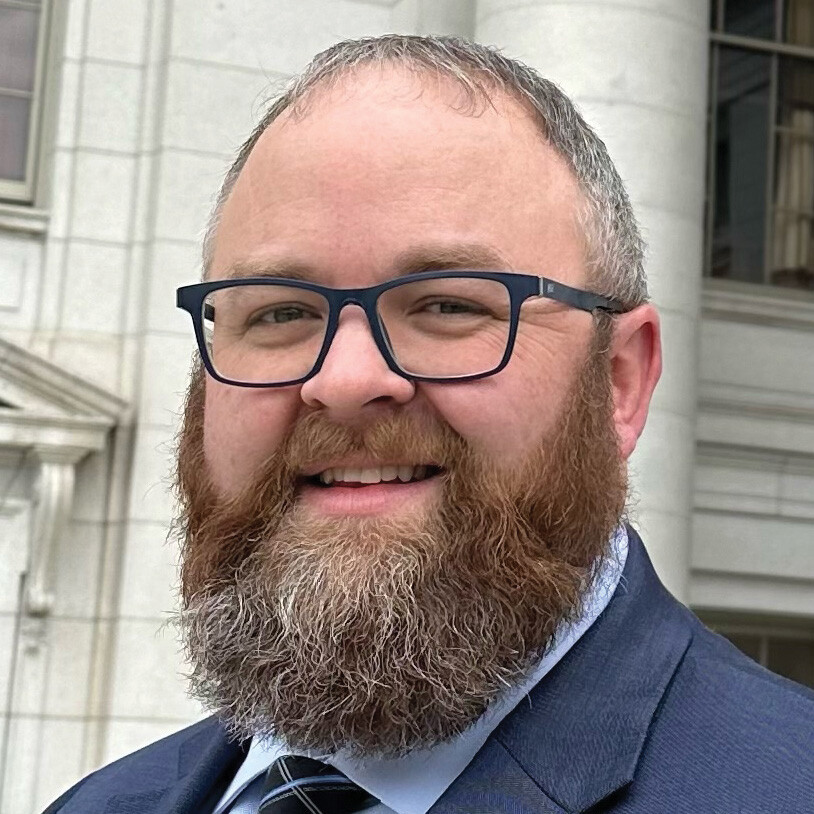
Brian Trowbridge (Challenger, District 2)
| Infrastructure | 20% |
|---|---|
| Public Safety | 20% |
| Public Transportation | 10% |
| Maintaining/Reducing Taxes | 5% |
| Recreational & Cultural Opportunities | 5% |
| Health Care Access | 5% |
| Economic Development | 20% |
| Environmental Sustainability | 5% |
| Affordable & Available Housing | 10% |
age 44.
years in Eau Claire 18 years in the city of Eau Claire, 36 years total in the Chippewa Valley.
family Two sons, ages 15 and 18.
occupation Law Enforcement/investigations.
education Kilian Community College, Sioux Falls, S.D., Associates in Human Services/Criminal Justice, 2005. UW-Whitewater, Associates in Liberal Arts, 2018. UW-Whitewater, Bachelors in Political Science/Public Administration minor, 2020.
political experience None.
What’s the most exciting thing to happen in Eau Claire in the past five years, and how do we expand on it?
It’s been exciting to see the development that’s taken in place in the downtown area, but’s time to expand that into other areas of the city that have been left behind such as the Hastings Way corridor.
What unique qualities or skills do you possess that set you apart from the other candidates?
I have worked for state and local government in corrections and law-enforcement for over 20 years. I also have a bachelors degree in political science with a minor in public administration. Between personal and professional experience, and my studies, I have learned a lot about the way government budgeting processes work and how to weigh issues to benefit both sides. In my professional experience, I’ve had the opportunity to work with several multidisciplinary teams, whose mission was to address community wide topics like drug endangered children, overdose deaths, and suicide/mental health.
What role should the city play in addressing the upheaval caused by the closure of HSHS Sacred Heart Hospital and the local Prevea clinics?
City government’s role in a situation like this should be to ensure that safeguards and services are already in place, so if something like this were to happen, the impact would be less substantial. Unfortunately, business decisions, like this have to be made and create many hardships for the communities left behind. The City should be doing everything possible to identify and attract a suitable replacement that will be able to serve our citizens into the future.
What can (or should) the city do to ensure affordable, accessible housing for all residents?
Eau Claire’s Century Code Update, currently underway, will help identify areas for improvement when it comes to zoning, and the development of affordable housing. Zoning is only one tool used to address affordable housing issues in Eau Claire. Affordable housing is a very complex issue reaching far beyond the simple availability of homes or other residential space. I would look into other programs that have proven successful for communities of a similar size and larger, including programs that offer tax incentives to owners of rental units that meet set requirements related to offering and maintaining quality affordable housing units.
Please write a statement explaining why you organized your priorities as you did.
The reason I’ve rated public safety, infrastructure, and economic development higher is due to the fact that the other categories are dependent on these three, and thereby would be included to a point. I absolutely believe that affordable housing, taxes, healthcare, recreation, and sustainability are of great importance to Eau Claire residents, but none of these would be manageable without a solid foundation of safety, infrastructure, and strong economic development.
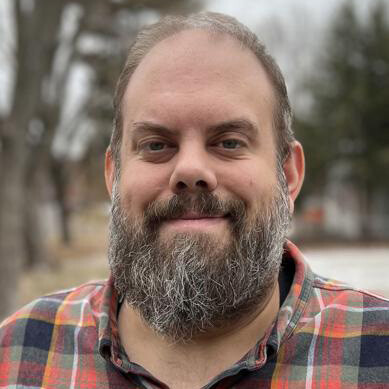
Aaron Brewster (District 3)
| Infrastructure | 20% |
|---|---|
| Public Safety | 15% |
| Public Transportation | 10% |
| Maintaining/Reducing Taxes | 0% |
| Recreational & Cultural Opportunities | 10% |
| Public Health | 0% |
| Economic Development | 15% |
| Environmental Sustainability | 15% |
| Affordable & Available Housing | 15% |
age 41.
years in Eau Claire 23.
family None listed.
occupation Freelance proofreader and copy editor, non-profit work, trivia host, property manager, always looking for the next adventure.
education Economics degree from UW-Eau Claire, 2011.
political experience Third Ward Neighborhood Association Steering Committee Rep and two terms as Chairperson, numerous City of Eau Claire committees and commissions.
What’s the most exciting thing to happen in Eau Claire in the past five years, and how do we expand on it?
There’s a lot going on in Eau Claire that I love and it’s hard to prioritize it. Our local restaurant scene continues to expand with some amazing new restaurants opening over the last few years and more to open this year. There’s a renewed focus on our parks and recreational infrastructure, and I want to give a little shout out to the Eastside Hill neighborhood and their ongoing work on Boyd Park! The new food co-op is open for business, as is the new Children’s Museum, giving the North Barstow area some great energy. Just to name a few.
What unique qualities or skills do you possess that set you apart from the other candidates?
Since there is no other candidate for my position, I hope I can talk about some qualities and skills of mine that will help me as the City Councilor for District Three. I’m a better than average writer, I have a good understanding of economics, and I’ve had the fortune to travel widely and experience what cities look like and how they function all over the world. I’m also a wonk who loves working on legislation and turning good ideas into workable regulations and policies.
What role should the city play in addressing the upheaval caused by the closure of HSHS Sacred Heart Hospital and the local Prevea clinics?
This will be a major if not THE major crisis of the next decade. I think the city should do whatever it can to get these facilities reopened and providing services again. If we can’t, the availability of healthcare in our community will suffer, the job market will suffer, and many of our neighbors will suffer. The short notice that we were all given on this closure did a great disservice to efforts to keep these facilities open, and we need to take steps to ensure that this type of thing doesn’t happen again.
What can (or should) the city do to ensure affordable, accessible housing for all residents?
If we had the kind of flexibility and creative revenue generating options available in a lot of states, there would be a lot more we could do, but the Wisconsin state legislature has seen fit to tie the municipalities’ hands in all sorts of ways. We can and should promote non-market rate housing options like cooperatives, and streamline the new construction process, but only part of the problem is the quantity of housing available. There are companies buying up huge amounts of housing and impacting the rental market rates, and I’m not sure what the city can do about that.
Please write a statement explaining why you organized your priorities as you did.
Running the city is a balancing act where absolutely everything is important to some degree or another. I spread my points across all the categories except two to reflect that belief. Of the two that didn’t get any of my points, the healthcare category is the easiest to discuss. Eau Claire just isn’t big enough to afford our own medical infrastructure like a city of county hospital, and so we are completely at the mercy of the the private sector when it comes to health care. The tax issue is a bit more complex. The state restricted Wisconsin municipalities’ taxing ability shortly after the local Uniroyal plant closure when the City of Eau Claire was doing everything possible to keep property taxes low and people in their homes, and we’ve basically been fighting ever since to keep everything we need funded every year. It’s easier to fund capital projects like roads since we can borrow for them, but the the operations budget has to be balanced every year and there is no fat left to cut, and hasn’t been for years. To be brutally honest, reducing taxes at the city level is simply not a possibility under current state restrictions.
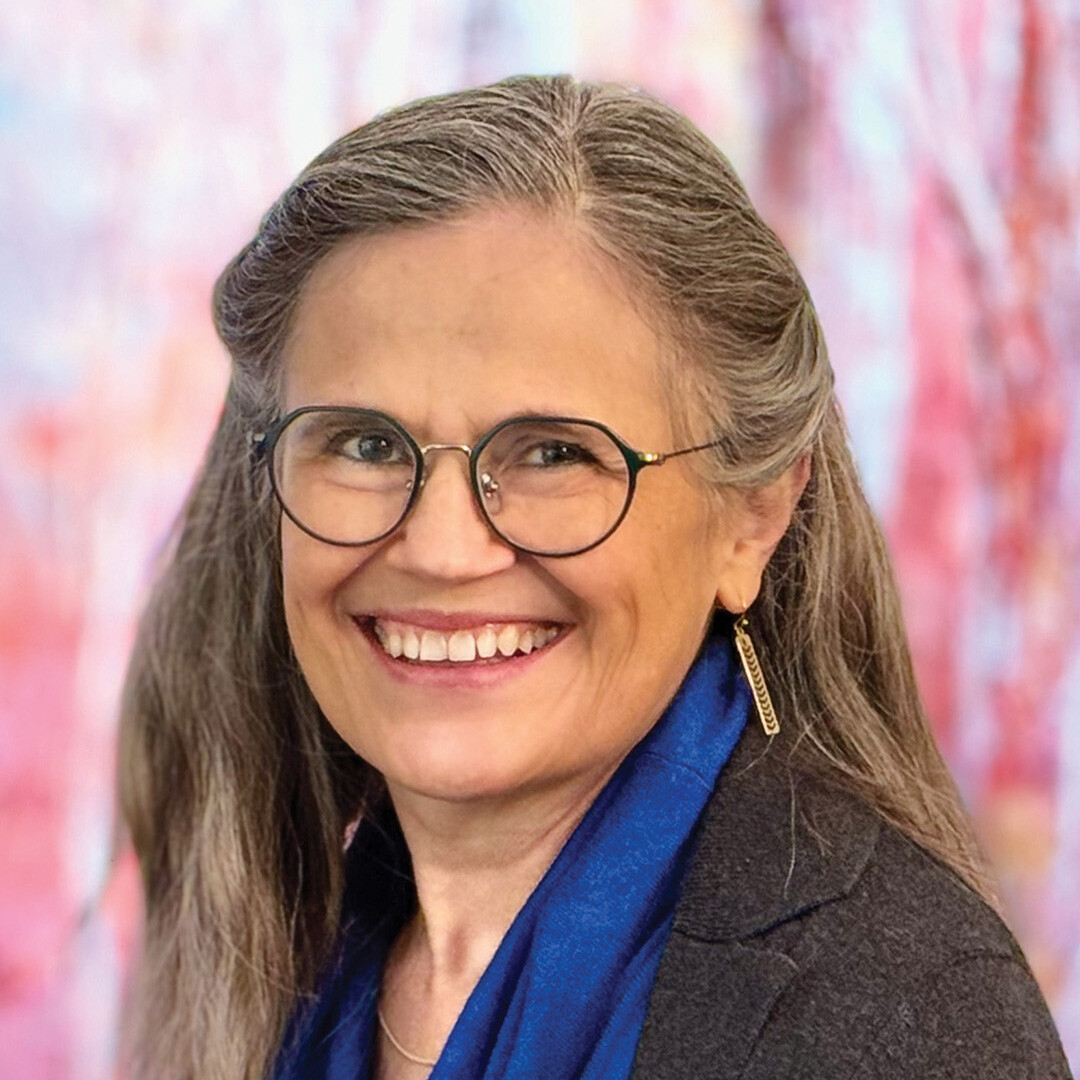
Clara I. Serrano (District 4)
| Infrastructure | 5% |
|---|---|
| Public Safety | 15% |
| Public Transportation | 15% |
| Maintaining/Reducing Taxes | 0% |
| Recreational & Cultural Opportunities | 10% |
| Public Health | 15% |
| Economic Development | 15% |
| Environmental Sustainability | 10% |
| Affordable & Available Housing | 15% |
age 62.
years in Eau Claire Three, but long history of coming here for 40 years.
family Chris Howard (husband), Jackie Howard (daughter), Shelley Howard (daughter), and Jamie Howard (daughter).
occupation Retired electrical and computer engineer.
education BS EE from UW-Madison, 1984.
political experience None.
What’s the most exciting thing to happen in Eau Claire in the past five years, and how do we expand on it?
The $340.3 million investment in the new UW-Eau Claire Science and Health building replacing the outdated Phillips Science Hall makes Eau Claire a hub for important STEM research and innovation. The collaboration with Mayo Clinic, Hewlett Packard Enterprise, and others will have vital impacts to workforce development short-term and longer term, and can serve to attract other new industries and businesses to the Eau Claire area. Also, the $107 million investment in the new Sonnentag event center will further define Eau Claire as a destination for many exciting related events.
We can expand on this momentum by attracting complementary innovators to Eau Claire.
What unique qualities or skills do you possess that set you apart from the other candidates?
Over my entire working career, my abilities with trust-building and active listening have yielded invaluable benefits in addressing difficult problems and when advancing big visionary goals. I have decades of experience in building highly effective and diverse teams, and in fostering a positive and energized culture wherever I am. I am an engineer by training, and am skilled at understanding difficult constraints, finding creative solutions and balancing trade-offs. I am also a fluent Spanish-speaker, which makes me uniquely able to reach out to and represent a diverse set of our city residents.
What role should the city play in addressing the upheaval caused by the closure of HSHS Sacred Heart Hospital and the local Prevea clinics?
Our recent upheaval in healthcare in the Chippewa Valley highlights the risks when a community completely depends on private enterprise for essential health services. At this juncture, the city should continue bringing leaders together to attract other providers to urgently expand their health care offerings. In parallel, the city should lobby our state and federal governments toward expansion of BadgerCare, and toward fixing one of the root faults in our healthcare business model related to Medicaid and Medicare reimbursement rates to providers. Also, we need to advocate for new creative solutions for healthcare services in our surrounding rural communities.
What can (or should) the city do to ensure affordable, accessible housing for all residents?
I am excited about the city’s new Century Code Zoning recommendations related to housing infill, updated allowances for ADUs and tiny homes, and also restrictions on short-term rentals, as important ways to address housing supply at all levels. Additionally, creative public/private partnerships in progress are also addressing housing for the homeless population. Making sure we take care of our lowest-income populations with housing and services affects us all as a community. I aspire to work with the Housing Opportunities Commission and to bring my skills to that group to continue to advance many of these initiatives.
Please write a statement explaining why you organized your priorities as you did.
All of these priorities are essential for a vibrant city, and Eau Claire needs to keep all of these areas in mind as we make decisions.
While very important, we have good systems in place to modernize our Infrastructure (streets, water), and to grow our Recreational and Cultural Opportunities.
We must keep our Public Safety needs as a very high priority as we continue to grow. Public Transportation also needs attention as we connect our growing neighborhoods, and this also has a direct effect on our Environmental Sustainability, so these items go hand in hand. Establishing Eau Claire as a passenger rail hub also has tremendous economic, environmental, and recreational opportunities.
These next three areas need focused attention. Our healthcare crisis needs to be addressed, ensuring that our remaining providers can grow with healthy business models. We need to expand our economic resiliency by further supporting the development of small, medium-sized, and larger businesses to responsibly thrive in Eau Claire with sustainable practices. And, we must creatively address our housing supply.
I rated maintaining/reducing taxes at 0% because our focus needs to be to get our fair share of tax revenues back from the state in our revenue sharing.
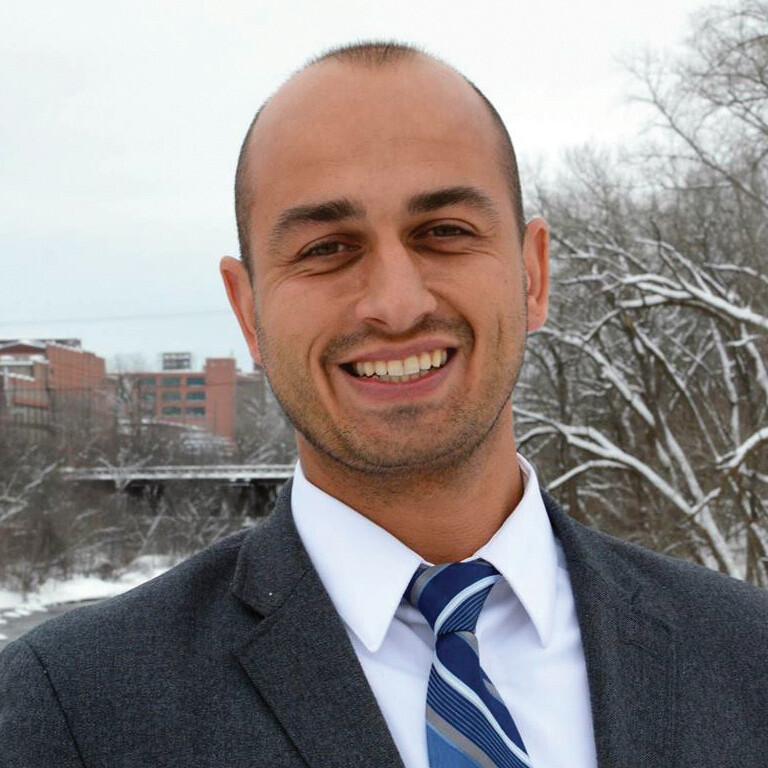
Andrew Werthmann (Incumbent, District 5)
| Infrastructure | 10% |
|---|---|
| Public Safety | 10% |
| Public Transportation | 10% |
| Maintaining/Reducing Taxes | 10% |
| Recreational & Cultural Opportunities | 10% |
| Public Health | 15% |
| Economic Development | 10% |
| Environmental Sustainability | 10% |
| Affordable & Available Housing | 15% |
age 41.
years in Eau Claire 22.
family Wife, Kerri.
occupation Federal and state policy consultant to The Pew Charitable Trusts’ campaign for U.S. Conservation.
education Bachelor’s degree, UW-Eau Claire.
political experience 15 years serving on the Eau Claire City Council.
What’s the most exciting thing to happen in Eau Claire in the past five years, and how do we expand on it?
While there are so many individual developments, events, and activities to be proud of, they’re best encapsulated by this fact: Eau Claire is the single fastest growing City outside the Madison area anywhere in Wisconsin. In fact, Eau Claire is gaining 1,000 new residents every year.
While that growth comes with its own challenges (such as making housing more affordable), I’d rather be a growing community than one residents are abandoning. Folks are literally voting with their feet, saying Eau Claire offers some of the best quality-of-life in Wisconsin and across America. I’m incredibly proud of that.
What unique qualities or skills do you possess that set you apart from the other candidates?
I’m excited for the new Council Members who have recently joined and will be coming on after April. As the longest-serving member of our Council, I’m in a unique position to share that institutional knowledge with our new members and provide a smooth transition when the new Council convenes.
Additionally, I’ve been on this Council this time of tremendous growth we’ve seen. I’ve always campaigned on putting quality-of-life first and that jobs will come if people want to live here. And that is exactly what has played out and made us a destination community to live, work, and play.
What role should the city play in addressing the upheaval caused by the closure of HSHS Sacred Heart Hospital and the local Prevea clinics?
An extremely active one. I reject the notion that local government should “sit back and let the market correct itself.”
While we’re more economically diverse than during the Uniroyal closure, this upheaval is hitting our most vulnerable, especially pregnant individuals and those needing mental health services. Nationally, our healthcare is a broken system, and Eau Claire just paid the price for that.
I’m thankful Gov. Evers and our area Legislators are taking this seriously because no one can solve this alone. Furthermore, this Council will not hesitate to take action to ensure HSHS meets every one of their legal obligations.
What can (or should) the city do to ensure affordable, accessible housing for all residents?
Being the fastest growing community outside Madison meant many homebuilders didn’t expect this level of demand; thus, the private sector built too few homes. Then COVID caused a multi-year supply crisis for building materials that’s only now letting up.
We can’t sit on the sidelines. If “the market” won’t build enough homes on its own, we must step in and incentivize large-scale construction of housing residents can afford. Our Affordable Housing Fund is fully utilized every year but it doesn’t go far enough. I’d like to see it expanded from $275,000 to $1 million a year.
Please write a statement explaining why you organized your priorities as you did.
Every one of these areas is important because it’s no one thing that makes a community a great place to live.
That being said, we must play to our strengths and address urgent needs. We know Eau Claire will never compete with certain areas of Wisconsin – let alone places like Mississippi or Alabama – for being the lowest taxed city to live in. Yet despite this, or more accurately because we are investing in ourselves, we are the second fastest growing community in Wisconsin and one of the top places to live in America.
It’d be easy to say, “we can no longer afford to invest in our parks, mass transit, or cultural opportunities.” But if that’s why folks are moving here (and growing our tax base), cutting these investments will only cripple our long term budget as we stop growing as a community.
Despite our success, right now our community faces two key challenges: the medical closures and affordable housing. Without sacrificing what makes our community special, every additional resource we have should be focused on improving these two situations first and foremost.
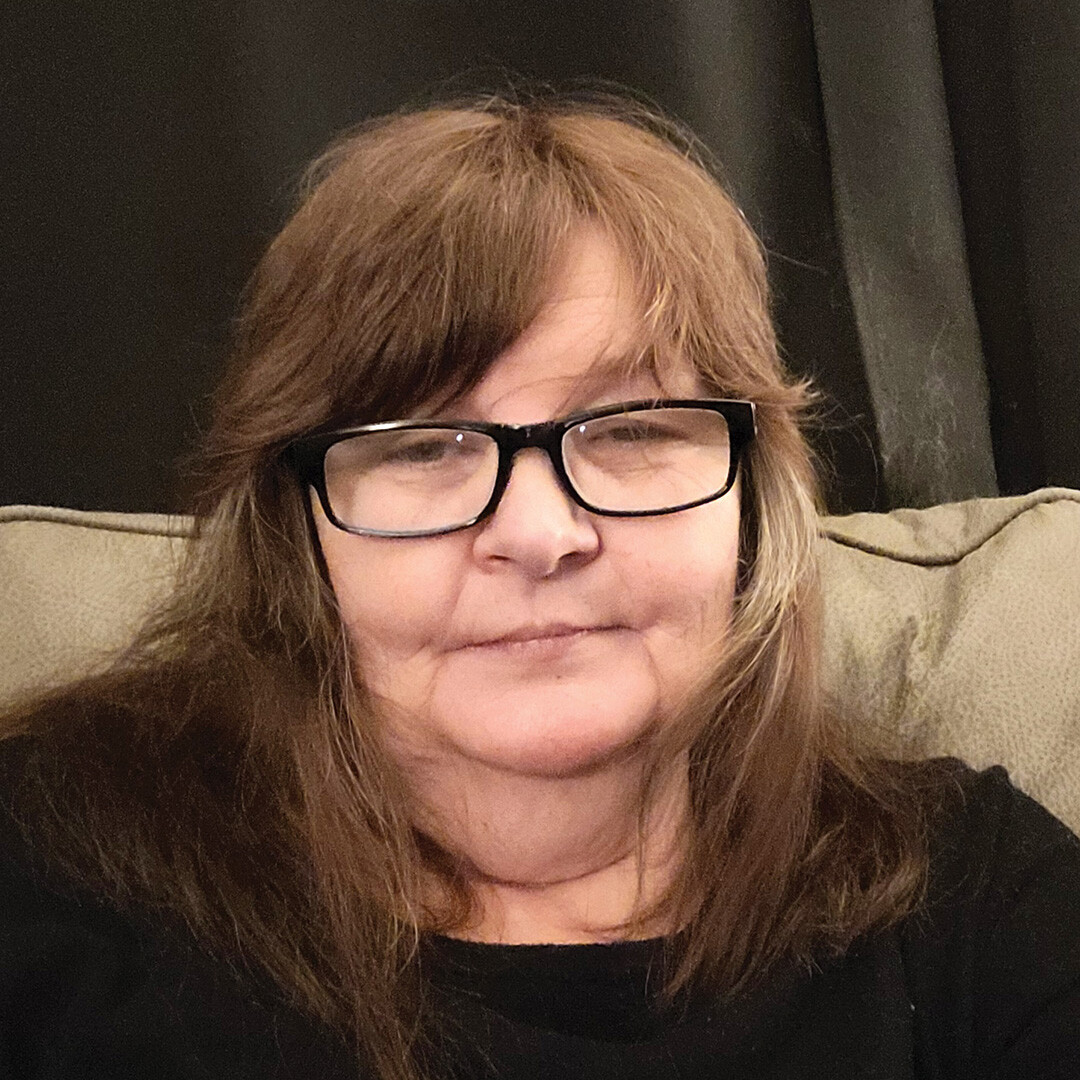
Mary Catherine Partlow (Challenger, District 5)
| Infrastructure | 10% |
|---|---|
| Public Safety | 10% |
| Public Transportation | 10% |
| Maintaining/Reducing Taxes | 10% |
| Recreational & Cultural Opportunities | 10% |
| Public Health | 10% |
| Economic Development | 10% |
| Environmental Sustainability | 10% |
| Affordable & Available Housing | 10% |
| Other | 10% |
age 58.
years in Eau Claire 40.
family Husband William, son Zachary, grandchildren Clover and Oriah.
occupation Customer service.
education Memorial High 1983, UW-Stout 2000.
political experience Parent President of Head Start, Student Council at Chippewa Valley Technical College.
What’s the most exciting thing to happen in Eau Claire in the past five years, and how do we expand on it?
For me the most exciting thing that happen in the past fivee years was last year when the EDDY was completed and it brought more affordable housing to Eau Claire. This was a very personal happening, due to at the time I was working with some residents at the Lakeside apartments and they had found out their apartment building was being closed down by the Mayo System. How do we expand? My thoughts are think out the box. One idea is Tiny Homes which I been working to bring to the Eau Claire area.
What unique qualities or skills do you possess that set you apart from the other candidates?
My unique qualities, are that I am very solution orientated. I bring life experience that most of the City Council members do not have. I am a advocate – for over 30 years. My belief is the more you bring to the table the better when trying to find a solution to the problem. I am honest, straightforward, and do not like to waste time or money. I am from Eau Claire, went to Eau Claire schools, worked in Eau Claire. I am third generation in Eau Claire.
What role should the city play in addressing the upheaval caused by the closure of HSHS Sacred Heart Hospital and the local Prevea clinics?
This is a hard question to answer for me only due to not knowing what we can and not do. I would have to bring the people that are affected by this on all sides and see what can be done. This situation is bringing me back to the time Uniroyal closed, and I watched a city die. My hope is that this situation is not treated the same as that.
What can (or should) the city do to ensure affordable, accessible housing for all residents?
What can/should a city do? Everything, from tax breaks to tiny homes. Again this IS something close to my heart due to my life as a advocate.
Please write a statement explaining why you organized your priorities as you did.
The reason I organized the priorities as I did is because I feel all are important and need to be address. I believe the people of Eau Claire have an equal say on where it wants to go. Finding middle ground is important. Eau Claire is really hurting right now. Addiction, homelessness, affordable housing, lack of services, roads with potholes you could lose a car, and the cost in taxes that just keep going up. I want to look at what the city has been doing and with community help, find a solution to all these things so they each can be address. Will, some take higher priority sometimes? Yes, just as in life. I believe I can do this. With the community around me, we can work on all these issue, and becoming fiscally responsible is the first thing that we need to look into. I will be doing meetings monthly with the residents of Eau Claire.
• • •
Want to learn more about these and other candidates? The Eau Claire Area Chamber of Commerce’s Good Government Council publishes answers to its own candidate questionnaires. Here are links to responses from spring 2024 candidates:
Eau Claire County Board Questionnaire
Eau Claire City Council Questionnaire
Altoona School Board Questionnaire
Eau Claire School Board Questionnaire


















